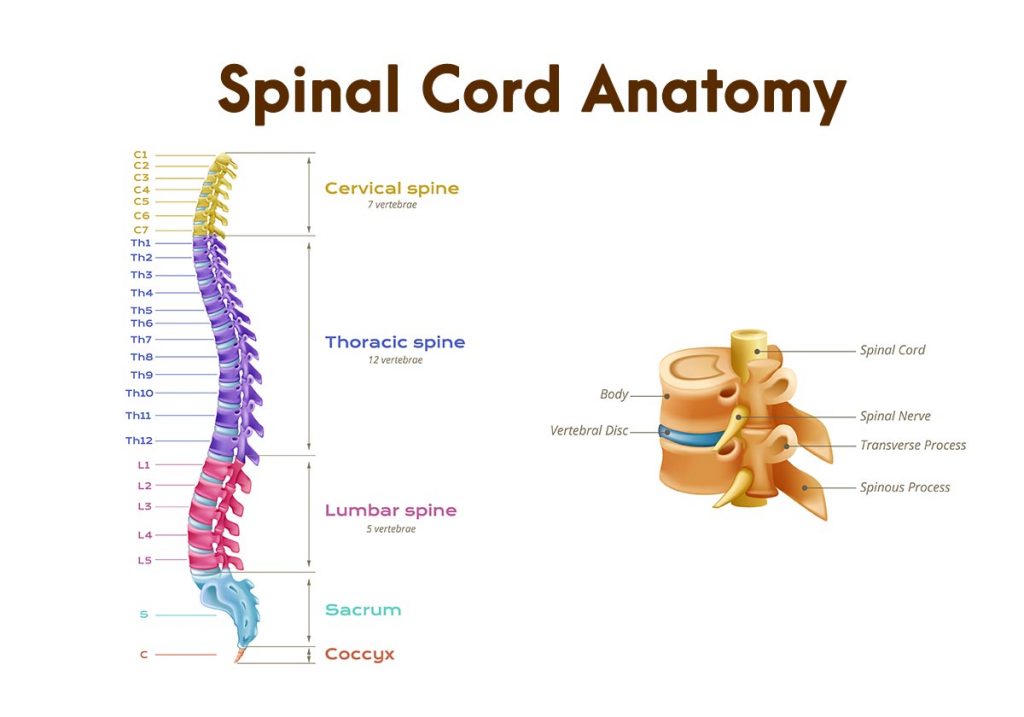Table of Contents
- What is Neuropathic Pain?
- Symptoms of Neuropathic Pain
- Causes of Neuropathic Pain
- Managing Neuropathic Pain
- Work Closely with a Doctor

Most people have heard of neuropathy pain and think of it as pain mostly occurring in the hands or feet. However, neurological pain can occur anywhere nerves exist, including the back, arms and legs or even all over the body. There are numerous causes of this type of pain, and they can be difficult to identify and address, depending on the cause. The following sections offer an overview of this complex medical condition.
What is Neuropathic Pain?
Neuropathic pain is pain that develops as a result of damage to nerves. According to the National Institutes of Health, approximately 7-10 percent of the population experience neuropathic pain. The pain is the result of injury or damage to peripheral nerves, the brain, and/or the spinal cord. These three units are the nervous system.
The brain and spinal cord make up the central nervous system. Peripheral nerves are the nerves located throughout the body. They are found in the arms, legs, toes, fingers and organs. Neuropathic pain may result from the specific nerves damaged or from the central nervous system. The pain reflects a disturbance in one or more nerves.

Symptoms of Neuropathic Pain
Neuropathic pain can be severe and expresses itself uniquely in each person. For example, it could be nerve pain all over the body or nerve pain in arms and legs or nerve pain in only the feet.
The typical symptoms include the following.
- Burning nerve pain
- Agonizing pain
- Electrical-like sensation
- Sensitivity to touch
- Pins and needles pain
- Tingling
- Numbness or weakness, usually in the legs
- Problems sensing temperatures
The different expressions of pain are one reason it is difficult to diagnosis the source of the pain.
Causes of Neuropathic Pain
What causes nerve pain? There are numerous causes because any damage or injury to any nerve or nerves can lead to neurological pains. Peripheral neuropathy is when the nerves located outside the spinal cord and brain are damaged. The major causes of neuropathic pain include the following.
- Compression of a nerve due to something like a ruptured disk or carpal tunnel syndrome
- Injuries to the spinal cord
- Diseases like diabetes, cancer and multiple sclerosis
- Disrupted pain signals between the brain and spinal cord for any reason
- Peripheral nerve injury due to an event like a stroke
- Medications that damage nerves
- Treatments like chemotherapy
- Inflammation
- Infection
Sometimes, there is no obvious cause of the pain, making it very difficult to treat.
Nerve back pain is common. Neuropathic pain originating in the back can be the result of something like a herniated disk, degenerated disk or injury to a spinal disk. Neuropathic pain emanating from the spinal nerves can travel down the leg, causing extreme shooting pain. This kind of pain is called sciatica pain.
Managing Neuropathic Pain
The treatment for neuropathic pain is a combination of doctor-ordered treatments and self-care. The doctor will conduct some medical tests to try and identify the source of neuropathic pain which is not always possible. The tests will determine the best approach for the management of neuropathic pain. The management plan will include a combination of medical and self-care approaches.
Following are some of the current approaches to managing neuropathic pain.
- Physical therapy
- Exercise
- Massage
- Medications
- Epidural injections
- Neurostimulation
Self-care includes ice and heat therapy and modification of activities that induce pain.

Work Closely with a Doctor
The challenge of neuropathic pain is identifying the source of the pain in order to develop the most effective pain management plan. Neuropathic pain is one of the more difficult medical conditions to treat. It is important to work closely with a doctor to attain the highest quality of life.
Sources
- https://www.ncbi.nlm.nih.gov/pmc/articles/PMC5371025/
- https://www.ncbi.nlm.nih.gov/pmc/articles/PMC6544553/
